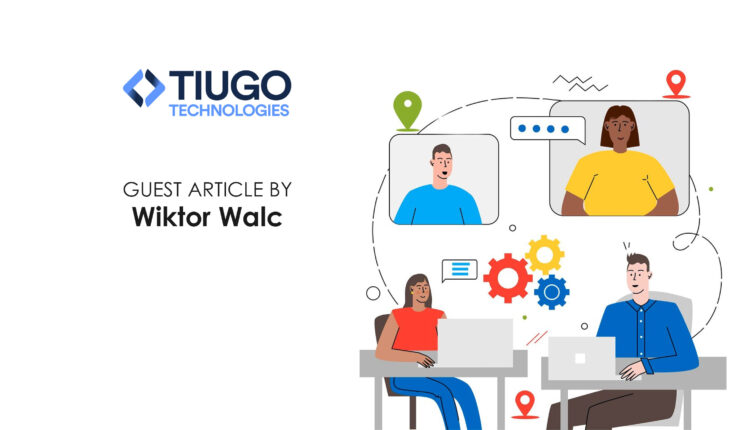
Mastering Asynchronous Collaboration in 2024: Top Tools for Leading a Remote Team
Despite increased efforts from big tech to bring employees back to the office, global hiring remains steady into 2024. While the benefits of a global team are clear – such as accessing expanded talent pools and establishing seamless connections with a broader range of customers – it comes with a unique set of challenges. From difficulties training and onboarding, potential communication gaps and the complexities of managing a variety of timezones, global businesses must invest in a robust and secure technology infrastructure that supports asynchronous collaboration. Asynchronous collaboration allows team members to contribute independently on their own schedules, reducing the dependency on real-time communication. This approach not only accommodates diverse work habits but also leverages digital tools to maintain efficiency and connectivity. From increased employee engagement to boosts in innovation and even document traceability, real-time collaboration tools increase efficiency with immediate feedback to speed up project timelines. The key to mastering this form of collaboration lies in understanding and effectively utilizing the right tools. These tools not only bridge the gap caused by physical distance but also enhance collaborative efforts through innovative features. Together, we’ll delve into the top tools and strategies for leading and growing a remote team in 2024, focusing on reducing email overload, leveraging AI and exploring the success of collaborative platforms. Reducing Email Overload with Advanced Collaboration Tools The traditional reliance on email often leads to cluttered inboxes and inefficient back-and-forth communication, particularly in remote teams. To combat this, modern collaboration tools offer streamlined alternatives. Picture a design project where team members seamlessly communicate through real-time chat on Slack, share design mock-ups via Asana, and track progress using Trello boards. By minimizing the need for lengthy email threads, these tools not only save time but also improve clarity in communication. This shift not only streamlines project management but also fosters a more agile and responsive work environment. As a result, remote teams can focus more on productive, complex tasks and less on sifting through emails, leading to a significant boost in overall team efficiency and job satisfaction. AI and Collaboration: Transforming Business Operations Artificial Intelligence (AI) is revolutionizing the realm of remote collaboration, offering unprecedented enhancements in team efficiency and decision-making. AI tools, like ChatGPT, Bard and Microsoft Azure, are flipping the script on how teams get things done. And when integrated with applications used everyday, teams can combine the power of AI and collaboration. For example, when content marketers need to update a company’s website or draft blog content, multiple team members can leave comments in real-time while also utilizing the benefits of AI, such as suggested sentences and automated SEO optimization. From improving your writing to making quick translations, AI assistants cut time used to write, rephrase, explain, translate and summarize the content. These tools excel in analyzing substantial volumes of data, empowering users with actionable insights. They also significantly decrease the time spent on data analysis, contributing to more efficient decision-making processes. For instance, AI-driven analytics can highlight project bottlenecks or suggest optimal task assignments based on team members’ past performance and workload. Additionally, AI can automate routine tasks, freeing team members to focus on more complex and creative work. Notably, integrating AI into a CRM platform can assist in analyzing high quantities of customer data thus providing educated responses to questions and enhancing personal customer experiences. The integration of AI into collaboration tools is not just about automation; it’s about augmenting human capabilities and creating a sharp and responsive workplace. This synergy between AI and human expertise is setting a new standard for business operations, leading to improved outcomes and a competitive edge in the marketplace. Marketing Technology News: MarTech Interview with Steve Sturges, Chief Marketing Officer at Paycom The Importance and Future of Collaboration Recent developer surveys have shed light on the critical importance of collaboration tools in software development. Developers emphasize the need for tools that support seamless code sharing, version control, and continuous integration/continuous deployment (CI/CD) processes. Looking to the future, there’s a strong trend towards integrating more AI and machine learning capabilities into these tools to predict potential coding errors and optimize workflows. Developers also anticipate a greater emphasis on security features, as remote work raises concerns about data breaches and intellectual property protection. These insights suggest that collaboration tools will continue to evolve, becoming more intelligent, secure and tailored to specific industry needs. In the realm of software collaboration, developers stress the escalating importance of collaborative features in applications. Key future developments are expected to center around real-time collaborative editing and features such as track changes and revision history. This shift points towards a trend in software development focusing on more interactive and dynamic solutions. Embracing Asynchronous Collaboration for Future Success In conclusion, mastering asynchronous collaboration is essential for the success of global, remote teams in 2024. This article has explored a range of tools and strategies that facilitate efficient, flexible, and innovative teamwork. From reducing email overload to leveraging AI in collaboration, these approaches are crucial for navigating the unique challenges of remote work for a growing, international team. The insights from developer surveys further underline the importance of evolving collaboration tools to meet future demands. By embracing these tools and trends, teams can enhance their productivity, foster a more engaging work environment and stay ahead in the ever-changing landscape of digital collaboration. Marketing Technology News: The Hidden Costs of Proprietary Platforms for Your CMS & DXP’s Also catch, Episode 184 Of The SalesStar Podcast: Al and Its Influence on Marketing: with Adri Gil Miner, CMO of Iterable
Trending News














